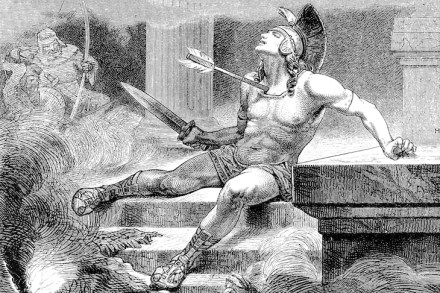Trailing clouds of perfume
In his robust new biography of Alcibiades, David Stuttard describes how the mercurial Greek general shocked his contemporaries by adopting Persian customs: Certainly, he embraced their lifestyle, tying his hair up in a bun, curling his well-oiled beard (a symbol of machismo in the Persian court), dousing himself in the perfumes for which Sardis was so famous, and dressing not just in sumptuous robes and beautifully fringed tunics of linen, wool and mohair (deep-dyed in vibrant reds and vivid yellows, and adorned with ornaments in glittering gold foil), but in those other garments so associated by Athenians with decadent, eastern effeminacy: trousers. I’ll be honest. After reading this showcase sentence,





















